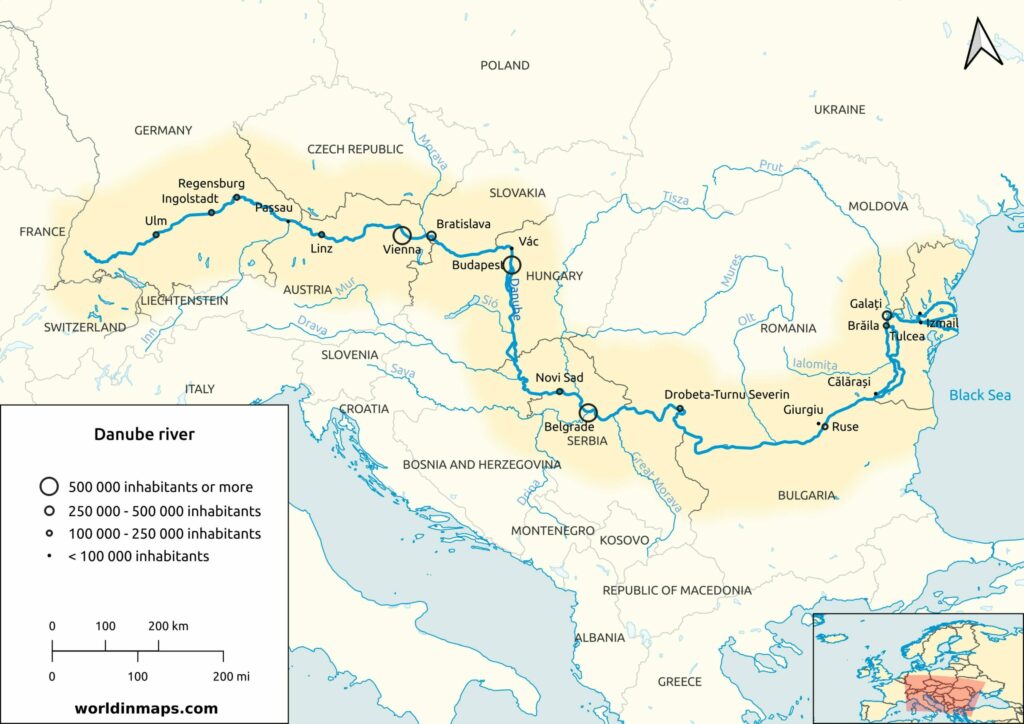Volos, Greece (PortSEurope) September 29, 2023 – Thessaloniki Port Authority S.A. (ThPA) with an offer for 51 million euro has been selected as the preferred investor for the acquisition of 67% of the share capital of Volos Port Authority S.A. (VPA). This means that the third largest port of Greece will fall in the hands of an oligarch with very close ties to the Kremlin. He also controls Greece’s second largest port of Thessaloniki.
2nd update: Why does the Volos port privatisation matter?
Thessaloniki port under proxy Russian and Chinese control
Belterra Investments, owned by a Russian billionaire of Greek origin, Ivan Savvidis, owns 71.85% of the share capital of ThPA. The other 28.15% are controlled by Terminal Link. Terminal Link is 49% owned by China Merchants Port Holding, controlled by the Chinese state and 51% by France’s CMA CGM.
The Chinese government continues to invest in port facilities as part of its new Silk Road policy, and already controls, via its COSCO Shipping Ports Limited, Greece’s largest port of Piraeus.
At the same time, Russia has been trying to develop its political and business links to the Balkan and Central European countries which were previously under the hegemony of the former Soviet Union.
Thessaloniki port is a strategic gateway for Northern Greece, landlocked North Macedonia, Kosovo and Serbia, and further, via the Danube River, into Central Europe.
All this cements the control by proxies of Russia and China of Greece’s ports. This has raised concerns in the European Union (EU) and the USA, and the port has become the subject of wide geopolitical interest.
The Russian tsar of Thessaloniki
In February 2021, Russian billionaire of Greek origin, born in Georgia, Ivan Savvidis, acquired the 47% stake in the port owned by DIEP. According to local media, he already owned 20% and the new acquisition increased his shareholding in ThPA to 67%.
Savidis (Savidi, Savvidis), “the Russian tsar of Thessaloniki”, according to local media, has been embroiled in numerous scandals and controversial situations in recent years. The owner of the Greek PAOK football club, hotels and a former member of the Russian State Duma, participates in the manufacture of cigarettes and sugar and is seen as one of the most powerful investors in Northern Greece.
Savidis’ name appeared in publications about the coup attempt against Montenegro’s then-Prime Minister Milo Djukanovic in 2016. Some time ago, he went to a football pitch with a gun during a match featuring his own football team. Russian President Vladimir Putin, with whom he has cordial relations, awarded him in 2019 the order of “many years of conscientious work” and “achievements in labour”.
Controversies
Not much attention was paid even by the specialised media on Chinese involvement in the privatisation of both Piraeus, Greece’s largest, and Thessaloniki ports. But even less information was published about the Russian link in the privatisation of the Port of Thessaloniki by Belterra Investments, owned by the Greek-Russian billionaire Ivan Savidis.
He is considered to be from the inner circle of Russian President Vladimir Putin, alleged to have tried to influence government policy and is said to have the ear of the former Greek Prime Minister and radical left SYRIZA leader Alexis Tsipras.
Savidis, 65, who made his fortune in agriculture and tobacco in southern Russia, had an arrest warrant (but has never been detained) issued against him for bringing a gun onto the soccer field to protest a referee’s decision.
Over the past decade, Savidis has invested in northern Greek businesses, some on the brink of collapse, as well as in media – television stations and newspapers – that are generally supportive of SYRIZA. Allegedly, he has been using his wealth and connections, despite not being fluent in Greek, to carry out what critics describe as double-dealing for Russia.
Media publications, that cannot be independently verified, claim that Savidis seems to have a lot of influence in Thessaloniki, and that U.S. and Greek officials believe he’s a straw man for Russian President Putin’s interest in the country and the Balkans.
North Macedonian scandal
The New York Times newspaper said that U.S. officials intercepted communications showing Savidis was working as Russia’s agent to undermine the name deal with the Former Yugoslav Republic of Macedonia (FYROM), which the West strongly backed to gain entry for what would become North Macedonia into NATO as a bulwark against growing Russian interests in the Balkans.
A senior U.S. official told the New York Times that U.S. agencies were able to easily collect financial data that put Savidis behind payments to citizens and soccer fans to incite violence against the FYROM referendum for the country’s name change.
According to the Organized Crime and Corruption Reporting Project, an investigative reporting organisation, Savidis paid opponents of the campaign to rename FYROM at least €300,000. Savidis strongly denied all charges. He was a member of Putin’s party, United Russia, when he was in the Duma, the lower House of Russia’s Parliament.
Volos privatisation
A file relating to the tender process will be submitted to the Court of Audit for pre-contractual audit and the transaction documents will be signed after the relevant approval. Volos Port Authority has the right to use and exploit the Port of Volos, the marine facilities of the fishing shelter located at the eastern end of the city’s seashore, as well as the port facilities of Almyros and Agria.
The Concession Agreement between the State and VPA has a duration of 60 years from its signing and expires in 2062. The main activities of VPA include freight and container services, steel and scrap metal, dry and wet bulk cargo along with passenger services, including ferry boats to the Sporades islands, as well as cruise activities.
Copyright (C) PortSEurope. All Rights Reserved. 2023.

